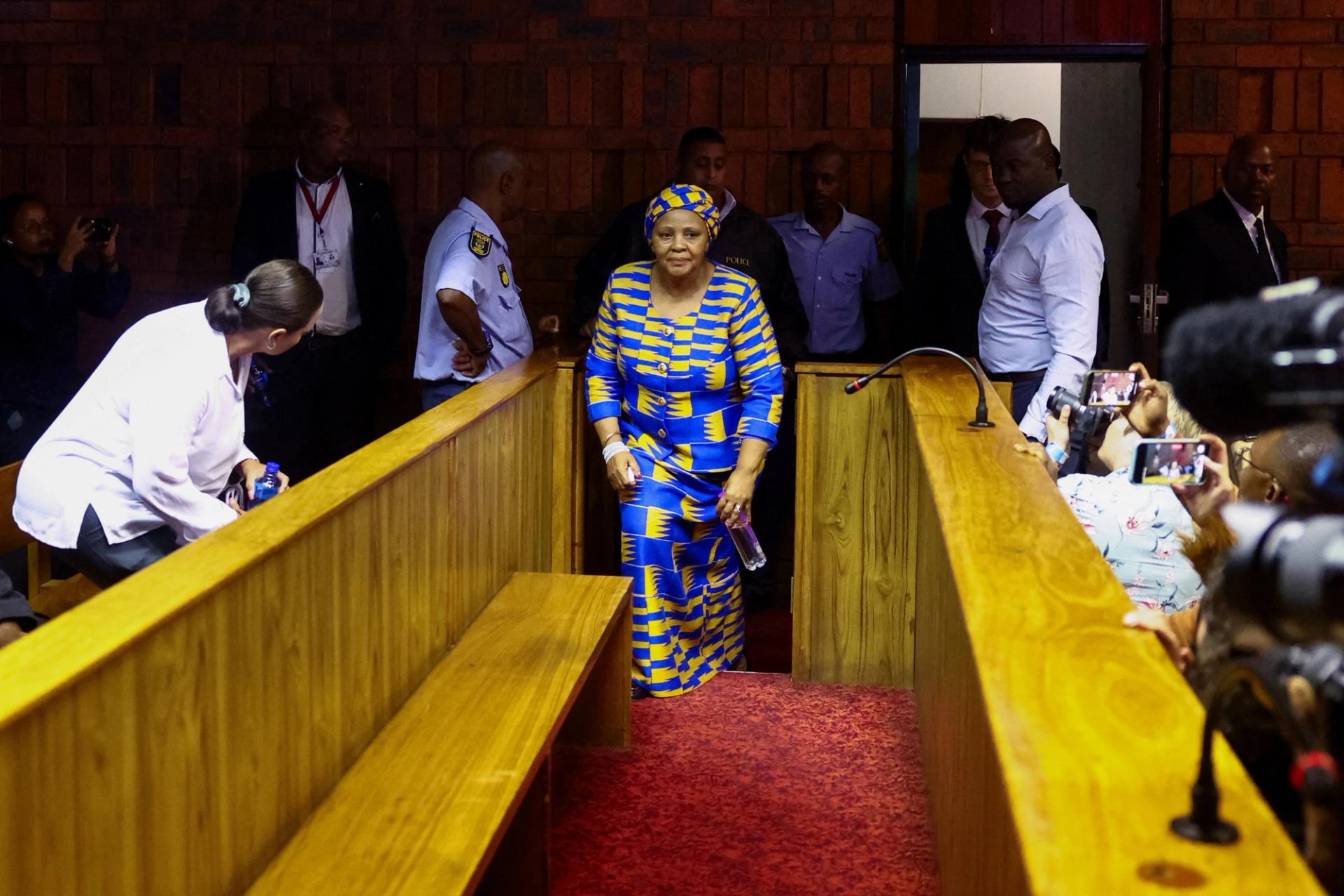The News
South Africa’s Parliament speaker has been accused of bribery and money laundering, becoming the latest African National Congress party member to be dragged into a scandal ahead of next month’s election.
Nosiviwe Mapisa-Nqakula, who resigned from her post as speaker on Wednesday, surrendered at a Pretoria court Thursday where she was charged with accepting more than $240,000 in bribes from a former military contractor during her tenure as defense minister. She was granted bail and has denied any wrongdoing.
The allegations are yet another setback for the ANC, whose decades-long rule after Nelson Mandela’s presidency has been marred by corruption, rising crime, and a prolonged energy crisis. South Africans head to the polls next month, where the ANC is widely expected to lose its parliamentary majority for the first time since apartheid ended.
SIGNALS
Speaker’s resignation saves ANC ‘embarrassment’ of defending her
The corruption probe onto the head of the country’s legislative branch is “unprecedented,” and by resigning, the ANC was spared of the “embarrassment of having to publicly defend her,” South African political journalist Marianne Merten wrote for the Daily Maverick. Unlike other ANC members who merely resigned after being accused of corruption, the opposition party threatened a vote of no confidence for Mapisa-Nqakula. Despite many in the ANC losing faith in Mapisa-Nqakula, the party would have continued to defend her had she not resigned because the ANC’s “attitude is that it will not have others force its hand, regardless of right or wrong,” Merten wrote.
ANC needs to come clean about its corruption problem
In his State of the Union Speech earlier this year, President Cyril Ramaphosa “told the nation what it wanted to hear instead of the difficult truths it needed to accept,” a Mail and Guardian editorial argued, which was that the ANC is unable to fix the country’s persistent energy crisis and rolling blackouts that are linked to systemic corruption. Some ANC members embroiled in corruption scandals have dismissed the country’s load-shedding problem — deliberately shutting down power in one sector of the grid to support other locations — as not “the end of the world,” despite its devastating impact on small businesses and the healthcare system, the editorial board wrote. “If Ramaphosa wants to make a difference, he has to sell his dream to his cabinet and bench, not us.”
Will the ANC form a coalition with the opposition to stay in power?
South Africa’s main opposition party — the Democratic Alliance (DA) — hopes to end the ANC’s 30-year-long rule, and polls show the ANC on track to losing its parliamentary majority. But the DA has an uphill battle to secure a majority win: the opposition is banking on joining forces with smaller parties that have a history of “often hostile, rough, and sometimes very toxic” engagements, one academic, who helped negotiate the electoral alliance, told the Associated Press. If the ANC loses the election, it still has an opportunity to form a coalition with other parties — including the DA — a proposition that the DA’s leader has not ruled out. The ANC, however, has rejected calls to form a parliamentary coalition, Reuters reported.


